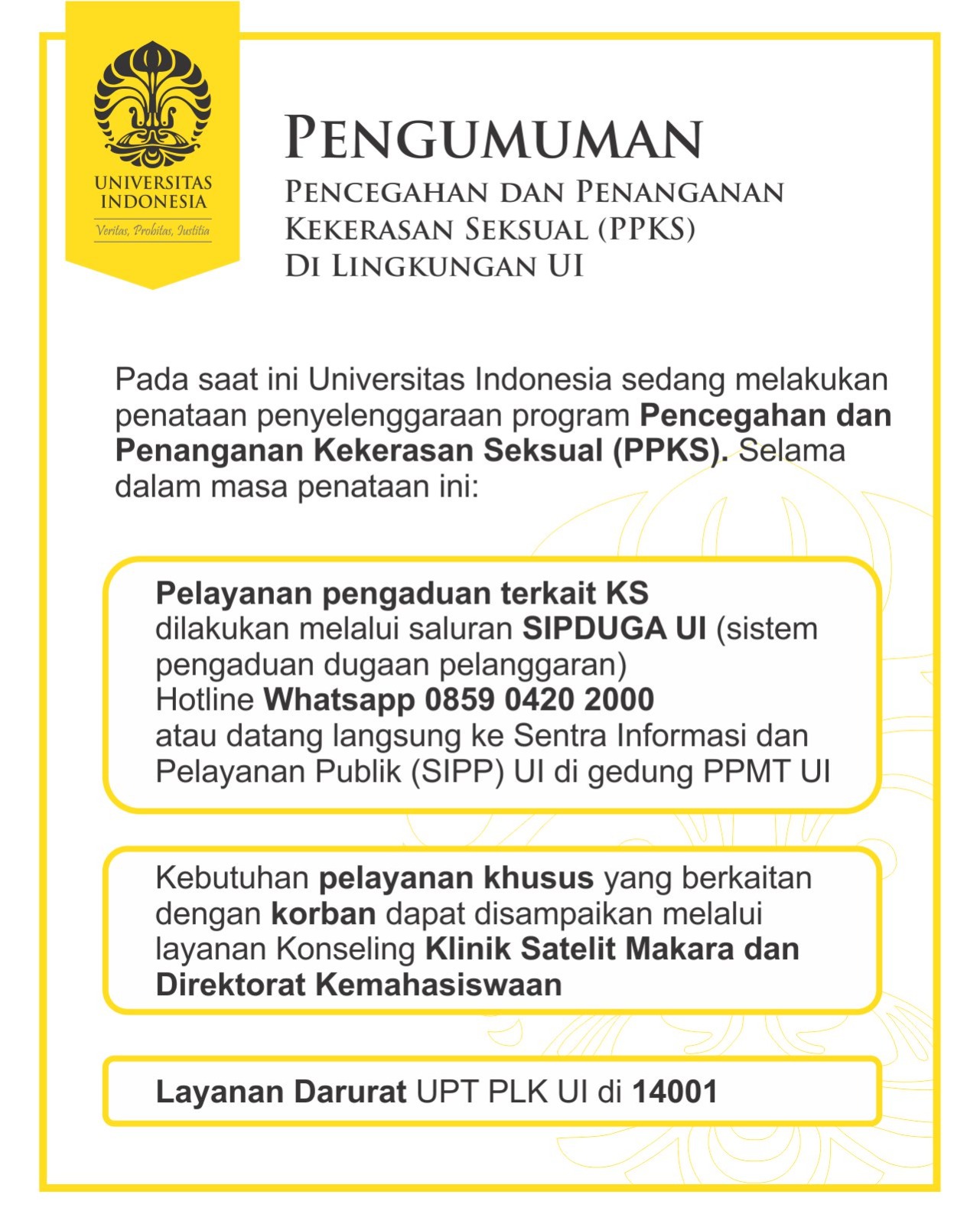
The relocation of the capital city is a hot topic of conversation at this time. In fact, the plan and discourse of moving the capital city has existed since the Soekarno government. Indonesia’s first president wants to move the capital city from Jakarta to Palangkaraya. Then at the beginning of Joko Widodo’s tenure as head of state in 2014, studies on the relocation of the capital were carried out, which was followed by the ratification of the State Capital Law (UU IKN).
To discuss relocating the country’s capital city, the Universitas Indonesia School of Strategic and Global Studies (SKSG UI) held a hybridpublic discussion on the Salemba UI Campus and was broadcast via Zoom Meeting, on Wednesday (9/3). The event was attended by members of the DPD RI DKI Jakarta, Fahira Idris, S.E., M.H.; Universitas Indonesia School of Strategic and Global StudiesI lecturer, Sri Yunanto, Ph.D; and the Head of the Universitas Indonesia School of Strategic and Global Studies Terrorism Study Program, Muhammad Syauqillah, Ph.D.
Nusantara—which will become the new capital city—appears with the concept of a forest city, which is to make the city side by side with nature. Nusantara also carries the concept of a smartand intelligent city that presents a modern city structure. “The characteristics of a modern city are the existence of a modern society that has a common future goal and thinks far ahead with innovative efforts through the use of technology. Through the city and modern society, this city is in line with the concept of a sustainable city,” said Fahira on the event.
Fahira added that the development of the new capital city must prioritize aspects of transparency, participation, and accountability. To maximize IKN Nusantara, the government must be faithful to the new capital city development goals stated in the National Medium-Term Development Plan (RPJMN) 2020–2024 which includes economic diversification and increasing non-traditional economic output. With the achievement of these goals, there will be further benefits, such as increasing the distribution of welfare in Indonesia, especially the eastern region, changing the development orientation from Java-centric to Indonesia-centric, as well as reducing the burden on the island of Java.
According to Yunanto, who also serves as an expert staff of the Presidential Advisory Council, relocating the capital city is now a must. The island of Java which bears the burden of about 56% of the entire population of Indonesia is considered not ideal and causes physical environmental problems, such as mostly polluted water, unhealthy air, and flooding due to the lack of water catchment areas. Jakarta, which is predicted to sink in the next few years, also strengthens the reason for relocation of the capital city from Jakarta to the new one.
Yunanto continued, one of the obstacles in moving the capital city at this time is the need for funds. It is estimated that the budget for relocating the capital city will reach Rp. 500 trillion. Approximately 50% of the budget is planned to be taken from the APBN and the remaining 26% from investments by BUMN (governmental managed company), BUMD, or the private sector. Several large countries are also interested in investing in Capital City Nusantara, but this investment from other countries must be watched out so that Capital City Nusantara is not controlled by foreign parties.
The condition of Indonesia, which is still hit by a pandemic and the current global conflict, is also a consideration in the plan to create Capital City Nusantara. The government is not only thinking about the huge costs for the transfer of IKN, but also big funds for subsidies for people’s basic needs, such as cooking oil. Many parties are worried that the relocation of the capital will make the government not focus on handling economic recovery. It is also feared to increase the state debt which currently reaches Rp. 6,687 trillion, or equivalent to 39% of Indonesia’s GDP. .
The Universitas Indonesia School of Strategic and Global Studies Public Discussion was held in the context of the Inauguration of the Student Forum for the Masters Program School of Strategic and Global Studies (FORMA SKSG) UI for the 2022-2023 period which was held before the discussion activity. On that occasion, Universitas Indonesia School of Strategic and Global Studies Director Athor Subroto, Ph.D., inaugurated Bahal Siregar from the Middle East and Islamic Studies Program as Chair of the Universitas Indonesia School of Strategic and Global Studies Student Forum. In his opening speech, Athor said that Capital City Nusantara is a new hope with the government’s commitment to make the new capital city a green, smart, and accessiblecity that can be an example for other cities in Indonesia.



